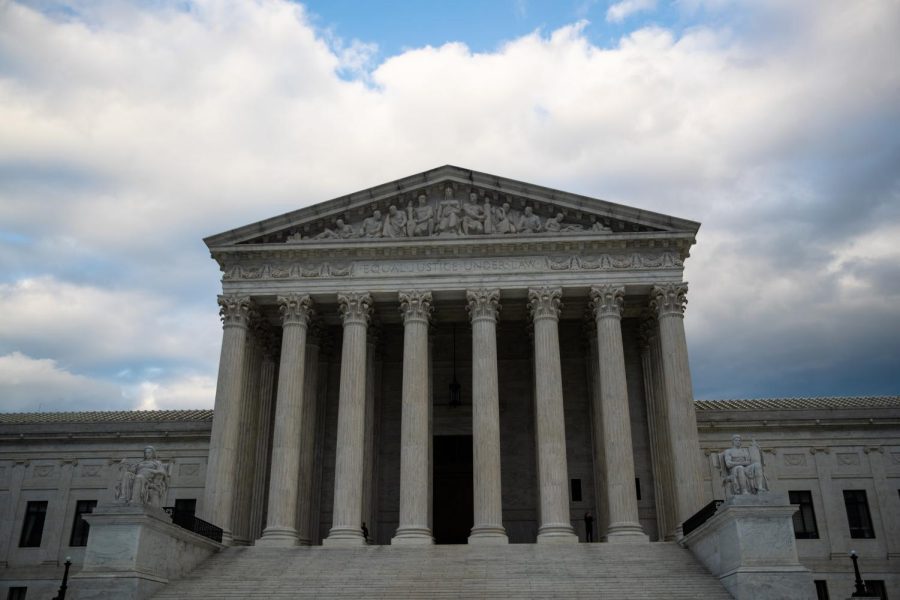Opinion | Religious rulings have no place in law
The Supreme Court’s decision to overturn Roe v. Wade made it clear those presiding over our country are governing without neutrality and regard to its citizens.
The United States Supreme Court Building is seen on Sunday, April 3, 2022.
June 30, 2022
Last Friday, the Supreme Court overturned Roe v. Wade — an umbrella case that gave people the right to get an abortion.
Many people’s view on abortion rights come from a place of religious beliefs, including our government leaders.
The recent Supreme Court decision to overturn Roe v. Wade was a decision based on the personal beliefs of those holding power, and not the majority. To impose those beliefs on an entire country is a gross infringement on others’ religious freedoms.
First, let’s tackle the obvious. Religion isn’t uniform. With thousands of religions existing in our world, it would be near impossible for them to all be the same. What Catholicism believes is not the same as what Judaism believes is not the same as what Islam believes, etc.
While Catholics and Protestants do make up the majority of religious people in the U.S., that should not take away from the millions of others who make up the minority religions, and in turn, beliefs.
Of the nine justices currently holding the court, six consider themselves to be Catholic.
After the leak of the draft opinion on the overturning of Roe, 66 percent of Americans did not want to see it overturned. At this point in time, it is glaringly obvious that SCOTUS is not ruling objectively, but instead, personally.
The entire premise of being a part of our country’s leadership is to appease all of the citizens within it. As a government leader, you are supposed to work for the people, not oppose them on your own selfish standards. And unfortunately, SCOTUS is doing just that.
In this country, over 20 million people consider themselves to be part of the LGBTQ community. Cases like Lawrence v. Texas, which legalized same-sex sexual acts, and Obergefell v. Hodges, which legalized same-sex marriage, were both founded on the same right to privacy premise that Roe was
Now that the case of Roe has been overturned, all cases founded on this premise can be compromised. And it has already been suggested. Justice Clarence Thomas said the two above cases, among others, should be revisited.
The Establishment Clause of the First Amendment is a call to keep church and state separate and allow the free exercise of religion.
With the overturn of Roe, however, not having access to abortion is an infringement of rights on more than one religion. Under Jewish tradition, a person who is pregnant is prioritized before the fetus. But, since the overturn of Roe bans abortion in any case, Jewish people worry about their religious freedom and privacy.
James Madison, a contributor to the Constitution, wrote in a letter to Edward Livingston “Religion and government will both exist in greater purity the less they are mixed together.” He adds at the end, “The merit will be doubled by the other lesson that religion flourishes in greater purity, without than with the aid of government”.
Democrats in power need to push for legislation. The ruling SCOTUS made is terrifying in many ways to several different demographics, and the other two government branches need to set their personal opinions aside and rectify it. Checks and balances have to come into play.
Not everyone believes the same things. You are allowed to believe what you want. However, it becomes a problem when you try to push those beliefs onto another. Especially in places of power, like SCOTUS.
Columns reflect the opinions of the authors and are not necessarily those of the Editorial Board, The Daily Iowan, or other organizations in which the author may be involved.














